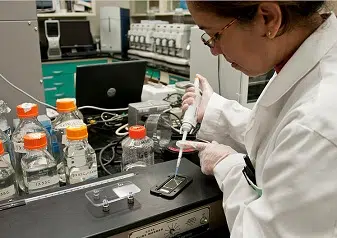 Toxicology is the scientific discipline dedicated to analyzing toxic substances and the consequences they cause in living beings . The term comes from the Greek word toxikon , which can be translated as "poison" .
Toxicology is the scientific discipline dedicated to analyzing toxic substances and the consequences they cause in living beings . The term comes from the Greek word toxikon , which can be translated as "poison" .
A toxic substance is one that causes poisoning or has poison . Poisons, meanwhile, can cause death or serious functional problems. Toxicity , on the other hand, refers to its level of effectiveness.
Returning to the idea of toxicology , it is the specialization aimed at the identification and study of this class of substances. Experts in this area seek to know how the toxic effect acts on the body and what the reversibility mechanisms are, for example.
Thanks to toxicology, the prevention and treatment of disorders that cause toxic effects is possible. To this end, toxicologists work together with professionals from various sciences, such as medicine , biology and chemistry.
Plants began to be classified according to their toxicity many centuries ago. Already in times of the Roman Empire, documents focused on these issues and the therapeutic benefits of vegetables were developed. However, only in the 19th century did toxicology acquire a scientific and formal character, based on the work of pioneers such as the Spanish scientist Mateo Orfila .
Mateo Orfila was born on the island of Menorca in 1787 and died in Paris in 1853. Among his most notable works are several treatises on this specific area among others, which reflect the results of his decades of tireless scientific research . Although his father wanted him to become a sailor, he did not succeed, and it was after this failure that he turned to medicine. He rejected academic education because he considered it poor, and became self-taught, taking as reference the French authors of the time.
Many consider Orfila the "father of toxicology." On the other hand, there are those who award this title to Theophrastus Phillippus Aureolus Bombastus von Hohenheim , also known by the name of Paracelsus , a doctor, astrologer and alchemist born in Switzerland in 1493 and died in Austria in 1541. The reason for this doubt is that he coined the phrase "the dose makes the poison," which became a maxim of toxicology. As a curious fact, his nickname was chosen by him because it means "equal or similar to Celsus", an important Roman scientist several centuries earlier.
 Toxicology focuses on concepts such as dose (the amount of substance) and threshold (the lower point from which members of a species react to the substance). An excessive dose, which already causes marked harmful effects, is called an overdose .
Toxicology focuses on concepts such as dose (the amount of substance) and threshold (the lower point from which members of a species react to the substance). An excessive dose, which already causes marked harmful effects, is called an overdose .
Over the years, various branches have emerged within toxicology, which were created according to the characteristics of the patients , the class of toxins on which it focuses or the area in which it is applied. Broadly speaking, we can mention the following: occupational, environmental, forensic, ecotoxicology, food and clinical .
For example, occupational toxicology is responsible for the study of those substances found in work spaces, identifying potential harmful agents and the diseases they can cause. The environmental, on the other hand, deals with the possible consequences of environmental pollutants on living organisms. The coroner's office , on the other hand, studies cases of intoxication that lead to legal action.
With respect to ecotoxicology, it focuses on the effects of certain agents and substances on groups of living organisms found in a defined ecosystem, taking into account transfer pathways, among other aspects.
